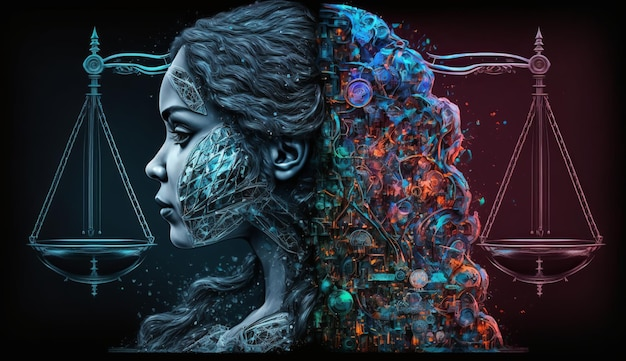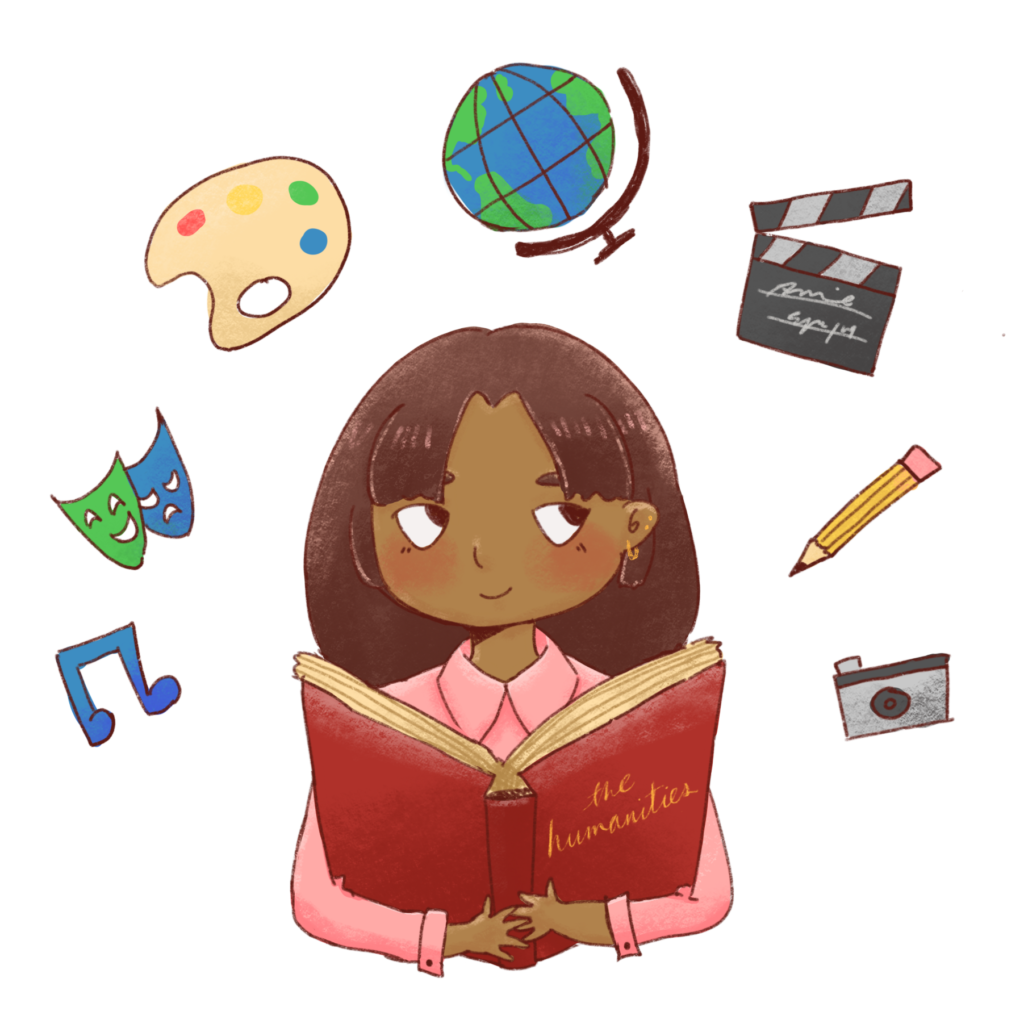
AI and Social Justice: Imagining a Better Future
AI and social justice converge at the vital intersection of technology and ethics, challenging us to rethink the future of humanity. Scholars like Ruha Benjamin argue that while artificial intelligence promises efficiency and innovation, it often perpetuates existing inequalities rather than alleviating them. As we navigate this rapidly evolving technological landscape, it becomes imperative to embed human values into the framework of AI development. By critically examining how these systems are built and governed, we can advocate for social change that prioritizes equity and fairness, instead of allowing billionaire tech elites to dictate our societal norms. Ultimately, envisioning a just future requires not just technical know-how but also a deep engagement with the humanities to inform the ethical implications of our technological choices.
The dialogue surrounding machine learning and equity raises important questions about the role of technology in shaping a fair society. Questions about algorithmic fairness and the implications of automated decision-making systems are now at the forefront of social discourse. Visionaries like Ruha Benjamin highlight the necessity of incorporating diverse perspectives into the design and implementation of these technologies. It is essential to foster a cultural shift that not only embraces innovation but also emphasizes the importance of collective human well-being. By imaginatively engaging with these challenges, we can dismantle oppressive structures and create a more inclusive future where technology serves humanity as a whole.
Ruha Benjamin’s Vision for a Just Future
Ruha Benjamin emphasizes that the future of humanity does not have to be dystopian; instead, it can be a space for creativity and collaboration toward social justice. In her recent Tanner Lectures, she urges individuals to visualize alternate futures that prioritize human values over mere technological advancement. Benjamin contends that the narrative surrounding AI often benefits tech elites and fails to integrate the perspectives of marginalized communities. By fostering discussions around AI’s potential impacts on society, she encourages a collective think-tank approach to envision a future that champions equality and hope.
The concept of a just future requires dismantling systemic barriers and engaging diverse voices in the conversation. Benjamin’s arguments resonate with the potential for technology to empower rather than oppress. Instead of seeing AI merely as a tool for efficiency, she calls for critically examining its role in reinforcing existing inequalities. A renewed focus on social change demands careful consideration of who benefits from technological advancements and how they can be harnessed to uplift the most vulnerable in society.
AI and Social Justice: A New Framework
The intersection of AI and social justice presents an opportunity to redefine the ethical frameworks surrounding technology. Ruha Benjamin argues that AI technologies are often marketed under the guise of efficiency but can lead to increased oppression, rescaling the conversations around technology’s moral responsibilities. By addressing the ethical implications of AI, society can shape its use in ways that align with human values rather than corporate interests. Benjamin points out the disconnect between algorithms purportedly making neutral decisions and the harsh realities faced by marginalized communities, calling for a critical evaluation of these technologies.
Benjamin advocates for a paradigm shift where social scientists, ethicists, and artists play a significant role in technological discourse. By integrating diverse knowledge systems into the development and deployment of AI, the aims of social justice can be better realized. This new framework not only makes room for human experiences and histories but also prioritizes collective interests over individual gains. The notion of reinventing societal systems rather than mere improvement urges us to envision a world free from border obstructions and systemic oppression—thereby creating pathways for a more equitable future.
The Role of Arts and Humanities in Shaping AI Ethics
As Ruha Benjamin aptly points out, the future of technology should integrate arts and humanities to address the ethical challenges posed by AI. By incorporating creative thinking and imaginative inquiry into technological discussions, society can better navigate the complexities of human values that are often overshadowed by technical discourses. Benjamin calls for universities to pivot toward fostering creativity alongside technical expertise, enabling students to engage in critical thinking about the implications of AI decisions on society.
The inclusion of arts and humanities strengthens the dialogue around technology, allowing for a more nuanced understanding of its impacts on human lives. By recognizing the interconnections between social change and technological advancement, educators and policymakers can facilitate broader conversations about the role of AI in shaping societal norms. This holistic approach not only cultivates a more significant capacity for innovation but also ensures that technology serves the common good, reducing the likelihood of reproducing historical injustices.
Challenging the Narrative of Technological Progress
Ruha Benjamin challenges the dominant narrative that equates technological progress with moral advancement. By examining the motivations of tech elites who promote AI as being altruistic, she reveals the underlying self-interest that often defines these advancements. Many innovations are touted as solutions to urgent societal issues while discreetly reinforcing patterns of oppression and exclusion—particularly against marginalized groups. This call to critically assess the purported benefits of AI urges society to rethink the value we place on technology and its relationship with social progress.
In doing so, Benjamin encourages a dialogue that not only questions existing technologies but also reimagines future innovations that genuinely address systemic issues. The path forward, according to her perspective, involves collective reassessment of our priorities and a belief that transformative solutions are achievable. It is essential to carve out space for critical thought that challenges existing assumptions about technology and its role in our lives, paving the way for a more just and equitable future for humanity.
Imagining Beyond Dystopia: The Power of Creativity
The call to envision alternate futures is central to Ruha Benjamin’s discourse on AI and social justice. By urging us to think creatively, she highlights the importance of imagination in shaping the narrative surrounding technology. Rather than succumbing to widespread fears about dystopian futures dominated by AI, Benjamin invites us to consider possibilities that transcend existing structures of power. This imaginative act serves as a powerful tool for dismantling mental barriers that compel society to accept the status quo.
Benjamin asserts that embracing creativity in our thinking can lead to transformative solutions for societal problems currently attributed to technological advancements. With creativity, we can envision systems that prioritize human welfare and redefine the parameters of success in technology from financial profits to ethical imperatives. This imaginative shift invites everyone—including policymakers, educators, and tech developers—to contribute to a vision that inspires positive social change and promotes a future defined by equity and inclusivity.
The Critical Role of Diverse Perspectives in AI Development
One of the key arguments presented by Ruha Benjamin is the necessity of incorporating diverse perspectives in the development of AI technologies. She argues that the technocratic approach, which often sidelines the voices of those most affected by these advancements, limits our capacity for generating meaningful solutions to pressing societal issues. By fostering a culture of inclusivity within technological discussions, we can create a framework that not only recognizes the complexities of human experience but also aims to address the root causes of inequalities.
Bringing together individuals from varied disciplines—including social sciences, humanities, and the arts—can enrich the dialogues surrounding AI ethics and application. Diverse viewpoints foster a greater understanding of the myriad ways that technology intersects with social justice, ultimately leading to innovations that serve the public good rather than exacerbating existing disparities. This collaborative approach can lay the groundwork for a future where technology upholds human dignity and fosters societal flourishing.
Reimagining the Intersection of Technology and Society
In her lectures, Ruha Benjamin challenges audiences to question how society envisions the intersection of technology and human values. Current trends often portray technology as an unmitigated force for good, yet Benjamin urges a more critical stance that examines the deeper implications of these advancements. By reimagining how we interact with technology, society can begin to redefine norms and behaviors that dictate our relationship with machines, generating a more equitable future.
This reimagining process calls for collective action, where communities come together to assert their values in technological advancements. Benjamin suggests that involving a broader array of stakeholders—particularly those traditionally left out of discussions—can lead to more ethically grounded applications of technology. By envisioning alternatives to conventional wisdom surrounding AI, society can create a future that aligns more closely with shared human rights and social justice goals.
Redefining Success in Technological Innovation
Ruha Benjamin’s critique of how success is measured in the realm of technological innovation invites a reevaluation of our definitions and expectations. The prevalent focus on profit and efficiency often overlooks the significant human costs behind those achievements. She calls for a redefinition of success that places ethical considerations at its core, examining how advancements affect diverse communities and contribute to social cohesion rather than discord.
By embracing a broader definition of success, we hold technology accountable for its impacts on society. This shift necessitates the involvement of voices from various backgrounds, encouraging nuanced conversations about what constitutes a successful innovation. A redefined perspective prompts technology developers and policymakers to prioritize human-centered designs that not only produce economic benefits but also enhance social welfare and contribute positively to humanity’s progress.
The Importance of Critical Imagination for Policy Change
Ruha Benjamin calls for critical imagination as a tool for implementing policy change that aligns with social justice goals. In envisioning new policies, acknowledging the historical context of technological advancements is crucial to ensuring that modern innovations do not repeat past injustices. Benjamin proposes that engaging in imaginative thinking can lead to policies that challenge the status quo and foster equality instead of oppression.
This process of critical imagination requires collaboration across disciplines, bringing together policymakers, activists, and technologists to envision solutions that prioritize the needs of marginalized communities. By fostering an environment where imaginative thought flourishes, society can bring about meaningful change, generating policies that reimagine how technology serves humanity. Ultimately, critical imagination becomes essential in crafting a future where liberation and justice are at the forefront of technological progress.
Frequently Asked Questions
How can AI and social justice intersect to promote ethical decision-making?
AI and social justice intersect by advocating for technologies that prioritize ethical decision-making, ensure equitable outcomes, and protect marginalized communities. Ruha Benjamin highlights the importance of incorporating human values into AI development to dismantle systemic oppression rather than perpetuating it.
What role does Ruha Benjamin believe AI plays in the future of humanity and social change?
Ruha Benjamin argues that AI can significantly impact the future of humanity and social change, but warns against tech elitism. She emphasizes the need for inclusive dialogue that incorporates diverse knowledges and experiences to create AI systems that genuinely serve the collective good.
In what ways can AI contribute to social justice, according to recent discussions?
Recent discussions, including those by Ruha Benjamin, suggest that AI can contribute to social justice by addressing inequalities in access to resources and services. However, it must be carefully designed to avoid replicating historical injustices, such as discrimination in healthcare or law enforcement.
What are the ethical implications of AI technologies on marginalized communities?
AI technologies often raise ethical concerns, particularly regarding their impact on marginalized communities. Ruha Benjamin critiques the tendency of AI to reinforce existing inequalities, urging for technologies that reflect social depth and a commitment to justice rather than merely technical efficiency.
How does Ruha Benjamin suggest we rethink AI’s role in society?
Ruha Benjamin suggests we rethink AI’s role by moving beyond a focus solely on technical capabilities. She calls for a reimagining of AI systems that align with social well-being, advocating for creativity and diverse perspectives in the development of technology for social justice.
Why does Ruha Benjamin caution against trusting tech elites with AI and social justice?
Ruha Benjamin cautions against trusting tech elites to guide AI and social justice because their visions often stem from self-interest rather than a genuine commitment to public good. She advocates for community involvement and interdisciplinary approaches that prioritize ethical considerations and equity.
What is the significance of including arts and humanities in AI discussions related to social justice?
Including arts and humanities in discussions of AI and social justice is significant because it fosters critical thinking, creativity, and a broader understanding of societal impacts. Ruha Benjamin emphasizes that these fields can help envision innovative solutions that address social issues effectively.
| Key Point | Details |
|---|---|
| Rethinking AI Futures | Ruha Benjamin urges citizens to envision a radically different future instead of succumbing to fears of an AI-driven dystopia. |
| Critique of Tech Elites | Benjamin argues that the visions presented by tech billionaires often serve their interests rather than the collective good. |
| AI and Oppression | Technologies marketed as efficient often perpetuate oppression, as seen in facial recognition systems leading to injustices. |
| Ethics of Decision-Making | Relying solely on algorithms for societal decision-making can disproportionately harm marginalized communities. |
| Need for Diverse Knowledge | Benjamin emphasizes the importance of incorporating diverse perspectives beyond technical expertise in tech solutions. |
| Imagination in Education | She calls for prioritizing creativity and critical inquiry in universities, especially in arts and humanities. |
| A Vision Beyond Borders | Benjamin challenges norms by suggesting envisioning a world devoid of policing, surveillance, and supremacy. |
Summary
AI and social justice are interlinked in the discourse about the future of technology and society. Ruha Benjamin encourages reimagining futures where AI contributes positively to human welfare rather than perpetuating existing inequalities. Through her critiques of tech elitism and the politics of AI, she highlights the need for inclusivity in discussions about technology. By fostering creativity and engaging diverse perspectives, society can forge a path toward just and equitable technological futures.


